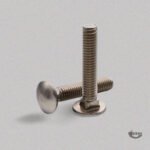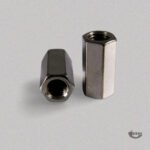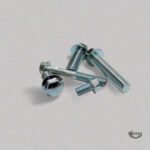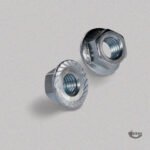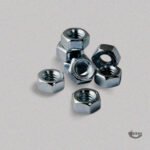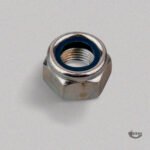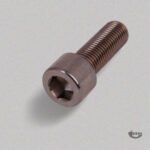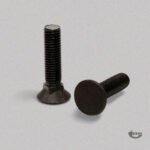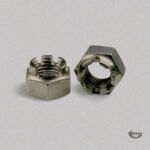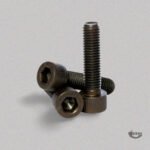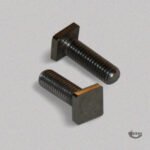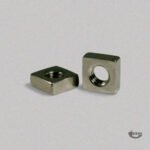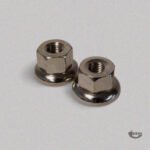Best Nuts, Bolts & Washers Manufacturer in India
We are leading Nuts & Bolts manufacturer and we offer our nuts & bolts in a wide variety.
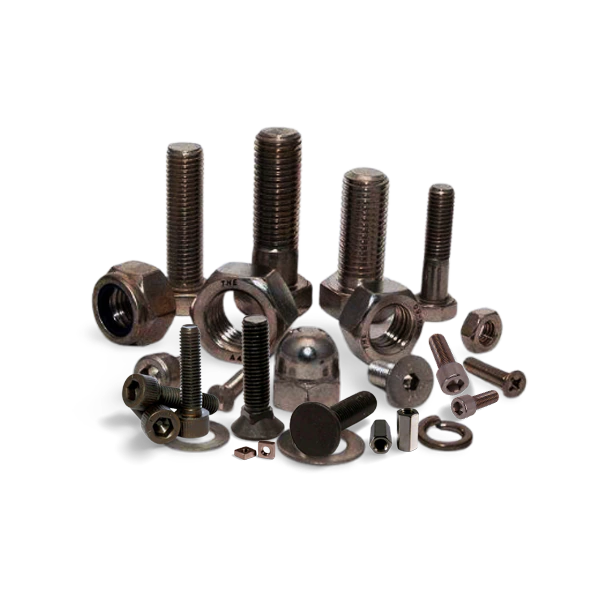
Table of Contents
Teshi Group : Leading Manufacturer, Stockist, Supplier, and Exporter of Nuts & Bolts in India.
Teshi Group stands as a leading manufacturer, stockist, supplier, and exporter of high-quality nuts and bolts in India, serving a wide range of industries with precision-engineered fasteners that meet the most stringent standards of quality and performance. With decades of expertise, the group has built a strong reputation for producing durable and reliable fastening solutions that cater to the needs of sectors such as oil & gas, chemical, petrochemical, construction, automotive, and many more. Teshi Group operates advanced manufacturing facilities equipped with cutting-edge technology, ensuring the production of nuts, bolts, and other fastening components that not only meet but exceed industry standards. As a prominent player in the fastener market, the group stocks an extensive inventory, ensuring that products are readily available for quick and efficient delivery, catering to both domestic and international markets. Their commitment to excellence is reinforced by a team of skilled professionals who oversee rigorous quality control processes at every stage of production. In addition to their strong domestic presence, Teshi Group’s export division ensures their high-quality products are delivered globally, further enhancing their reputation as a reliable and trusted supplier worldwide. Teshi Group’s dedication to continuous improvement and innovation makes it the preferred choice for customers seeking dependable, cost-effective, and high-performance nuts and bolts.
About Nuts & Bolts :-
Nuts and bolts are essential fasteners used across various industries and applications, from construction and automotive to electronics and aerospace. These simple yet crucial components consist of two parts: the nut, a hexagonal or square-shaped piece with internal threads, and the bolt, a cylindrical rod with external threads. When paired together, nuts and bolts create a strong, reliable fastening mechanism that holds materials together securely. They come in a wide range of sizes, materials, and grades to meet the specific needs of different applications, including stainless steel, carbon steel, and alloy steel for corrosion resistance and strength. Nuts and bolts are available in different types, such as hex bolts, carriage bolts, eye bolts, and lock bolts, with each designed for specific functions, ensuring optimal performance in various environments. These fasteners are known for their versatility, allowing easy assembly and disassembly, making them ideal for projects requiring frequent maintenance or adjustments. Whether used in heavy machinery, home construction, or industrial equipment, nuts and bolts play a pivotal role in providing structural integrity and reliability, making them a critical choice for engineers, manufacturers, and DIY enthusiasts alike. With high-strength options available, they are essential for ensuring the durability and safety of numerous products and structures, driving industries forward with their unparalleled performance and adaptability.
Teshi Group is an ISO certified Nuts & Bolts manufacturer & distributor in India.
Nuts & Bolts Specification, Grades & Material
Specification | |
|---|---|
Nuts & Bolts Types |
Coupling Nuts, Flange Nuts, Hex Nuts, Lock Nuts, Slotted Nuts, Carriage bolts, Flange Bolts, Hex Head Bolts, Plow Bolts, Allen Bolts etc. |
Class |
150 LBS, 300 LBS, 600 LBS, 900 LBS, 1500 LBS, 2500 LBS ASA 150, ASA 300, PN 6,10,16,25, 40,64,100,160 ETC. available with NACE MR 01-75 |
Size |
M3 X 6MM to M48 X 300 generally conforming to IS 1363(Part 1 & 2) 2002, 3/16” X 1/2” to 2” X 12” in BSW threads generally conforming to BS 916,M2 to M60 generally conforming to IS 1363(Part 3)2002 (Hex Nut) and to IS 1364(Part 4)2003 (Lock (Thin) Nut), 1/8” to 2” in BSW threadsgenerally conforming to BS 916, 1/2” to 3” in BSP threadsgenerally conforming to IS 3468-1991, 1/4" to 1" in BSW threads, M6 to M24 in MM threads, M5 to M12generally conforming to IS 2585-2006, 1/8” to 1/2” in BSW threads,M6 to M24, M6 x 12 to M10 x 25mm, Lifting Hooks M8 to M48, Eye Bolt (Small Eye) M8 x 40 to M24 x 200, Eye Nuts M12 to M 20, M10 to M48 generally conforming to IS 2232-1967, 3/8" to 2" in BSW threads M3 to M48 generally conforming to IS7002-2005 1/4" to 1" in BSW, UNC, UNF and BSF threads. M6 to M16 1/4" to 5/8" in BSW threads M6 x 25mm to M20 x 100mm 1/4" x 1" to 3/4" x 4" 6 x 12mm to 24 x 100mm generally conforming to IS 1929/1982 and IS 2155/1982 1/4" x 1/2" to 1" x 4" 1/4" x 1 1/2" to 1/2" to 12" Special C.P. Carriage bolts with Nut and Washers 1/4" x 1 1/2" to 3" (for C.P.Aldrops) 3mm to 64mm generally conforming to IS 2016/67 1/8" to 2" 12mm to 24mm Suitable for pipe sizes of 3/4" to 12" with bolt dia of 8mm to 12mm 5/16" x 3" to 7" suitable for pipes of 1" to 2" 5/16" x 3" to 7" M6 to M20 in 1Mtr & 2Mtr length M6 to M16 |
Types |
Raised Face (RF), Flat Face (FF), Ring Type Joint (RTJ), Lap-Joint Face (LJF), Large Male-Female (LMF), Small Male-Female (SMF), Large Tongue & Groove, Small Tongue, Groove |
Grades & Materials | |
|---|---|
Stainless Steel |
ASTM /ASME A/SA 213 / 249 / 269 / 312 / 358 CL. I to V – 304 , 304L , 304H, 309S ,309H , 310S, 310H , 316 , 316TI , 316H , 316 LN , 317 , 317L , 321 , 321H , 347 , 347 H , 904L |
Duplex Steel |
ASTM/ASME A/SA 789, 790 – UNS NO S 31803, S 32205, S 32550, S 32750, S 32760. |
Carbon Steel |
ASTM A106 Gr. A, B & C API 5L Gr. A / B, X42 ,X52 ,X60 ASTM A 53 Gr. A/B |
Alloys Steel |
ASTM /ASME A/SA 213 / 335 / 691 – P5,P9,P11,P12,P22,P91 |
Nickel Alloys |
Nickel Alloys 200, Nickel Alloys 201 |
Hastelloy |
Hastelloy C-22, Hastelloy C-276, Hastelloy C-2000, Hastelloy C-4, Hastelloy X, Hastelloy B, Hastelloy N, Hastelloy G |
Inconel |
Inconel 600, Inconel 601, Inconel 625, Inconel 625LCF, Inconel 686, Inconel 718, Inconel 800, Inconel 825, Inconel X-750 , Inconel 690, Inconel 602, Inconel 617, Inconel 925, Inconel A-289, Inconel AL-6XN, AL-904L |
Nuts & Bolts
Dimension Standards
ASME B15.5 & B16.47, AWWA, IS 1538, IS 6392, EN1092 etc.
Nuts & Bolts Packaging & Delivery Details
Pay Mode Terms- L/C (Letter of Credit), T/T (Bank Transfer), Other
Port of Dispatch- Any Port from India
Packaging Details- Flanges are packaged with caution and safety so they reach our client’s as good as he would expect. Packaging Charges Extra.
Tax- 18% GST only for domestic delivery. No GST for other countries.
Frequently Asked Questions
Most frequent questions and answers
What are nuts and bolts used for?
Nuts and bolts are used in fastening and securing two or more objects together. Bolts are typically threaded and pass through pre-drilled holes in materials, while nuts are hexagonal or other shapes, designed to fit onto the bolt, creating a secure fastening. Commonly used in construction, manufacturing, machinery, and automotive industries, they provide a reliable and adjustable fastening solution.
Can nuts and bolts be reused?
In many cases, nuts and bolts can be reused if they are not worn, damaged, or corroded. However, for high-stress or critical applications, such as in aerospace or automotive industries, used nuts and bolts are often not recommended. Reusing fasteners could lead to compromised strength, particularly if the threads are worn or the bolt has undergone stress beyond its design limits. It’s always a good idea to inspect fasteners before reuse.
What is a locknut and when should it be used?
A locknut is a type of nut designed to resist loosening when subjected to vibration or torque. Locknuts have an additional feature, such as a nylon insert or a deformed shape, that grips the bolt more tightly. These are commonly used in machinery, automotive, and heavy-duty applications where maintaining tightness is critical to the safety and function of the equipment.
What is a threaded bolt and how is it different from a smooth bolt?
A threaded bolt has a series of spiraled grooves (threads) along its length, allowing it to be fastened into a nut or tapped hole. This provides a secure fastening by creating friction between the threads. On the other hand, a smooth bolt (or unthreaded bolt) does not have threads along the shaft. Smooth bolts are typically used in applications where a nut is not required, and the bolt slides through the material to secure two parts with a nut at the opposite end.
Can nuts and bolts be used in outdoor applications?
Yes, nuts and bolts can be used in outdoor applications, but it is essential to choose fasteners that are resistant to corrosion. Stainless steel or hot-dipped galvanized bolts and nuts are ideal for outdoor applications as they provide better protection against rust and corrosion caused by exposure to moisture, humidity, and temperature fluctuations. For extreme conditions, such as marine environments, marine-grade fasteners may be necessary.
What is a flange bolt, and when is it used?
A flange bolt is a type of bolt that has a built-in washer (flange) underneath the head. The flange provides a larger surface area to distribute the load, reducing the risk of damage to the material being fastened. These bolts are often used in applications where a larger load-bearing surface is needed, such as in automotive or industrial equipment where vibration resistance is critical.
What is a hex nut?
A hex nut is a six-sided nut used with bolts of matching size and thread to create a secure fastening. It is one of the most common types of nuts and is widely used in a variety of industries, including construction, machinery, and automotive. Hex nuts are easy to tighten using a wrench, making them a versatile choice for most fastening applications.
What is a machine bolt, and where is it used?
A machine bolt is a type of bolt designed for use in machine components. It is typically a threaded fastener used to secure parts in machinery and equipment. Machine bolts are ideal for fastening metal-to-metal connections, especially where precise alignment and strong fastening are necessary. These bolts can be used in industrial, automotive, and construction applications.
What is a shoulder bolt, and when should it be used?
A shoulder bolt features a smooth, unthreaded shoulder between the head and the threaded portion, making it perfect for applications that require a precise, fixed center point. The shoulder acts as a pivot or guide, making these bolts ideal for hinges, gears, and machine components. They provide strength and reliability when parts must rotate or slide along the bolt.
What is the torque specification for tightening nuts and bolts?
The torque specification for tightening nuts and bolts depends on the bolt size, material, grade, and the specific application. It’s important to follow the manufacturer’s guidelines to avoid over-tightening or under-tightening, which can affect the performance of the fastener. Torque wrenches are typically used to ensure that the proper tightening force is applied, ensuring a secure, reliable connection without damaging the bolt or the material being fastened.
What is a heavy hex bolt?
A heavy hex bolt is a larger, stronger version of a standard hex bolt. It is commonly used in heavy-duty applications that require higher strength and durability, such as in construction or structural applications. Heavy hex bolts have a thicker head, which provides increased strength and can withstand more demanding conditions. These are often used when high torque or load-bearing capacity is essential.
Can you use nuts and bolts in high-temperature applications?
Yes, nuts and bolts can be used in high-temperature environments, but it’s important to select the correct materials for the application. Heat-resistant materials like stainless steel, alloy steel, or titanium are ideal for use in extreme conditions. For example, Grade 8 or high-temperature bolts are designed to withstand high heat, while ceramic-coated nuts and bolts can offer protection in higher-temperature environments such as those found in engines, furnaces, or power plants.
Can I use nuts and bolts in underwater or marine applications?
Yes, nuts and bolts can be used in underwater or marine environments, but it’s critical to use marine-grade fasteners made from corrosion-resistant materials such as 316 stainless steel or brass. These materials offer superior resistance to rust, corrosion, and saltwater damage. Marine-grade bolts and nuts are often used in boat construction, underwater equipment, and offshore platforms.
How do you calculate the tensile strength of a bolt?
The tensile strength of a bolt refers to the maximum amount of tensile (pulling) force it can withstand before breaking. To calculate it, you need the ultimate tensile strength (UTS) of the material the bolt is made from and the cross-sectional area of the bolt. The formula is:
Tensile Strength = UTS × Cross − sectional Area
For standard bolts, this calculation helps ensure that the selected bolt will handle the load without failure.

